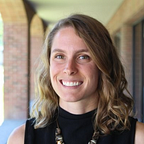Let Them Lead
This summer, Denver students created anti-bullying solutions during the 3rd annual Think Like a Genius Foundation Challenge. The challenge is over, but the solutions live on as the students implement them in their schools and community.
Think Like a Genius Foundation asks “young people to find ways to solve community issues that affect children and youth.” The focus this year was bullying.
The challenge was created to help students learn about themselves and how to set goals. The foundation partners with other organizations which support youth struggling with the impact of pressures all around them — broken families, gangs, and violence. The foundation helps provide a supportive environment to students.
“Youth groups throughout the community are tasked with creating a model that solves a problem, taking and integrating it into the community, and making it happen.” said Eric Siler, Think Like a Genius Foundation executive director. “All the youth teams come up with a solution that they have to implement and demonstrate sustainability. Just by coming to the challenge they use 21st century skills — critical thinking, collaboration, innovation, creativity and communication.”
The kids obtain help from mentors, but it’s minimal. Art Curtis, history teacher at KIPP Denver Collegiate, mentored a team from his school. “I was impressed with what a great plan the student team came up with, without much teacher coordinator input. The solution was 98% them.”
The KIPP Denver Collegiate team thought of creating an app that gave students an outlet to report bullying and an opportunity to talk to counselors or peers. The anti-bullying solution made a perfect t with the school’s existing Fly- er School App, which connects all families with relevant school information and resources.
“I felt kind of scared, we didn’t know how to develop the app and had a lot of questions,” said Arely, a student team member. She felt one of the biggest lessons she learned from the process was to reach out to adults and set up meetings. They sent Zuben Bastani, Flyer CEO, an email.
“I was thrilled to hear from the students,” said Zuben. I’m always looking for feedback to make the app more useful. The opportunity to work with these motivated, innovative students has been inspiring.”
The students chose the Flyer app as the means of communication since their community had already embraced it. Families, teachers, administrators, and students use the app more often than other means such as social media, email, and phone for school communications.
“The challenge was a great way to spend my summer,” says Arely. “It helped me learn a lot of collaborative skills, I had to step up and work with a team. It was really fun.” She also learned from other teams who had an earlier start and were able to conduct more testing and get feed- back on their project.
In the next two weeks, the team will present the anti-bullying solution to the school at a town hall. Students will have access to the anti-bullying resources on their phone, complemented with options for in-person counselor sessions and peer group meetings. To make the solution sustainable, they plan to measure it’s success, learn as the school year progresses, and continue with ideas to improve it as they go. While the students look to create a sustainable anti-bullying solution, they’ll continue learning about themselves and how capable they really are.
Originally published at https://www.flyerconnect.org on September 18, 2017.
